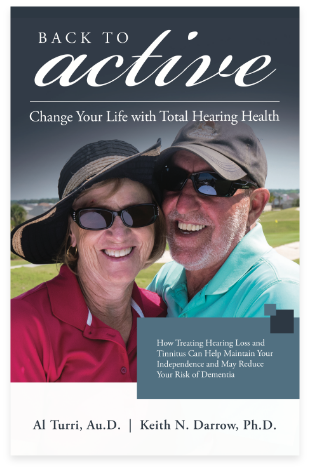Gifts are available on a first come, first serve basis. One gift per household.

Sudden Hearing Loss in One Ear: What You Need to Know
Sudden hearing loss or deafness is a medical condition that usually affects one ear. This phenomenon is often an unexplained and rapid incidence of hearing loss that is considered a medical emergency. Sudden hearing loss in one ear can be accompanied by dizziness and tinnitus (ringing or buzzing in the ear) in one or both ears. While it is easy to write this type of hearing loss off as a side effect of allergies, sinus infections, earwax buildups, or other more mundane conditions – prompt diagnosis and treatment is imperative to maintaining total hearing health. Any delay in receiving treatment for this type of sudden hearing loss can decrease the effectiveness of treatment and put patients at risk for prolonged hearing damage.
What are the Causes of Sudden Hearing Loss?
The symptoms of sudden hearing loss extend beyond an acute episode of sudden deafness. The condition may be preceded by ear pressure, tinnitus, loss of sensation in the outer ear and dizziness up to a few days prior to the hearing loss. The cause of sudden hearing loss is yet to be determined by the medical community, but in many cases the circulation of the inner ear is restricted during the condition’s onset. Audiologists and Ear, Nose and Throat (ENT) specialty physicians suggest that sudden hearing loss in one ear can be attributed to:
•Viral or bacterial infections
•Arteriosclerosis or circulatory disorders
•Diabetes
•Cervical spine injury
•Autoimmune diseases
•Middle ear infections
•Thrombosis of the inner ear’s blood vessels
•Blood clots
It’s important to note that sudden hearing loss differs from age-related hearing loss in that it is often the body’s response to other conditions such as high cholesterol, high blood sugar, obesity, and the chronic use of nicotine and alcohol. The association of hearing loss with these risk factors means that it is important to manage your overall health in order to prevent these kinds of conditions from manifesting.
Diagnosing Sudden Hearing Loss
If you are concerned that you’re experiencing warning signs of sudden deafness or if you’ve recently lost hearing, schedule an appointment with an audiologist to diagnose and treat your condition. Sudden sensorineural hearing loss (SSHL) can be diagnosed a hearing test and case history. This test helps determine if hearing loss is caused by sound not reaching the inner ear or if there is a sensorineural deficit. Other diagnostic tests that may be performed in diagnosing sudden hearing loss include blood pressure testing, ear ultrasound or an MRI.
The good news is that more often than not, sudden hearing loss can be treated. The faster treatment is received, the higher the chances that it will be effective. In instances in which the cause of the sudden hearing loss is not known, your doctor might prescribe corticosteroids to reduce inflammation and help the auditory system return to homeostasis.
Recognizing the warning signs and understanding the implications of untreated sudden hearing loss is the first step in the prevention of this condition. If you experience symptoms such as tinnitus, dizzy spells or ear pain, schedule an appointment with an audiologist to address your concerns before your hearing is affected. The Villages Health’s team of audiologists are medically trained to diagnose and treat a variety of disorders related to hearing loss, including sudden deafness.
More Resources